Redefining Competency-Based Education: Awarding University Credit for Work Skills
By Bruce Griffiths
The steady loss of jobs resulting from a dramatic and accelerating work place shift to automation, as well as the general trend toward a more knowledge-based economy, has left many experienced workers needing to reset their lives as they shift to new careers. It can be disappointing and disheartening to abandon accumulated knowledge gained in one field, when forced to change to a totally new career. Of course, as workers grew their field-specific skills, they have also been developing other, more generic skillsets. They’ve learned to be efficient (manage time), the importance of team play (how to build work relationships), how solve problems and make decisions, the importance of being good communicators, and how to influence outcomes. These extremely valuable skillsets are transferable to other work content and contexts. As these experienced workers retrain themselves in a new field, wouldn’t it be rewarding and ego-boosting if they could get academic credit for these very important skillsets they’ve spent years developing in the workplace?
Recently OSI was involved in a pilot project with an established university that combined our deep understanding of the competence required for exceptional performance across organizations, with our expertise in the tried-and-true assessment center methodology, to award academic credit for universal skillsets to undergraduates in a variety of degree programs. Employing the robust assessment center methodology that uses simulations to emulate work situations (e.g., meetings, presentations, interviews, in-baskets, etc.), participants were measured against a standard of proficiency required in typical team settings. Performance rated by expert assessors at or above a level of proficiency required to add value in organizational contexts, was awarded academic credit. Competencies measured included the universally-valid “soft” skillsets of Organizing & Planning, Problem Solving & Decision Making, Informal and Formal Communications, Interpersonal Skills, and Influence. Participants were able to earn up to 18 units of credit in this two day experience.
Several participant examples stand out as particularly illustrative. Student A had been with a big box retailer for over 15 years, but automation had resulted in a lay off, and he was now enrolled in a hospitality undergraduate program to turn his career in a new direction. Student B had been in health care as a paramedic and paramedic instructor, but an injury ended that career, and he was now shifting to information technology for his restart. Both had many years of successful contributions in different work settings, and during the assessment center simulations, both proved their proficiency in similar transferable skillsets. In both cases they earned significant academic credit to accelerate their journey to a bachelor’s degree. And it was also extremely gratifying to see the confidence boost as they got “credit” for these important employability skillsets! A case in point, a young female participant who performed exceptionally well, and received the maximum credit allowed. It opened her eyes to her true potential, and the validation sent her back to work motivated and inspired.
For those of us who have worked in private and public sector organizations for decades, it has long made sense to us that colleges and universities add or emphasize these skillsets to their current degree programs. This addition does not need to compromise the other benefits of a college education, but a primary motive for attending college is career preparation. So why not make explicit the “soft skills” that turn out to be extremely hard predictors of success in most organizational settings? And then, why not award credit and/or teach those skillsets in the context of degree preparation? Of course this requires two absolutely essential foundational elements: a credible model of skillsets (competencies) needed in the work place, and the robust, behavior-based methodology (assessment center) that 50+ years of experience can provide. These two essentials have long been employed in the private sector in the context of succession planning and selection, and are also needed more than ever as baby boomers retire at record levels and succession management becomes extremely important. OSI’s Polaris ® Competency Model and our 40+ year history with assessment centers offer a ready remedy in both this article’s featured academic setting, and in company succession management!


